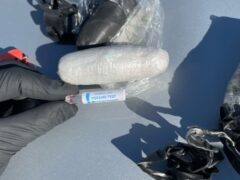cocaine
FL: COCAINE HEADED FOR PRISON FACILITY DISCOVERED FOLLOWING TRAFFIC STOP; TWO OUT OF MIAMI ARRESTED

cocaine
ABC (Australia News) Victorian men jailed over attempted ‘astronomical’ cocaine import into South Australia
cocaine
Military-trained narcos arrested in three tonne cocaine bust in south of Spain: Kalashnikov assault rifles among weapons seized
cocaine
Shipment of grapes entering Canada hid massive stash of suspected cocaine
-

 Cannabis News2 years ago
Cannabis News2 years agoDistressed Cannabis Business Takeaways – Canna Law Blog™
-

 One-Hit Wonders2 years ago
One-Hit Wonders2 years agoUnited States: Alex Malyshev And Melinda Fellner Discuss The Intersection Of Tax And Cannabis In New Video Series – Part VI: Licensing (Video)
-

 Cannabis 1012 years ago
Cannabis 1012 years agoWhat you Need to Know
-

 drug testing1 year ago
drug testing1 year agoDrug Testing for Marijuana – The Joint Blog
-

 Education2 years ago
Education2 years agoNCIA Write About Their Equity Scholarship Program
-

 Cannabis2 years ago
Cannabis2 years agoIt has been a wild news week – here’s how CBD and weed can help you relax
-

 Marijuana Business Daily2 years ago
Marijuana Business Daily2 years agoCannabis, alcohol firm SNDL loses CA$372.4 million in 2022
-

 California2 years ago
California2 years agoA new April 20 cannabis contest includes a $40,000 purse

















